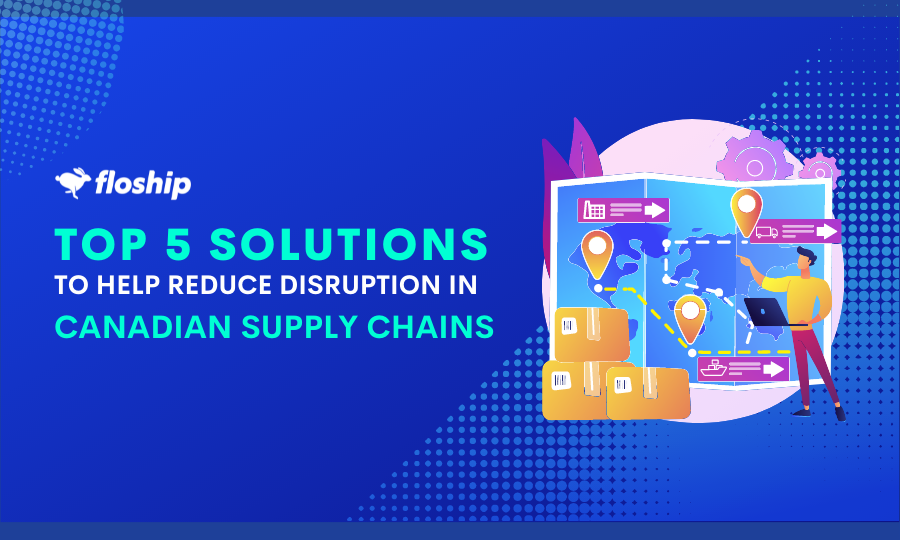Consumers today are used to making their decisions by visiting multiple platforms before they make a single purchase. For example, they try a watch on in a physical store, and then maybe look online or on their smart devices before making a final decision. With more channels available to look at and buy products, companies have an opportunity to engage with these consumers at more touchpoints and encourage them to examine their shopping behavior better. This approach is known as omnichannel marketing.
This post will discuss omnichannel marketing, is its pros and cons, and what it means for logistics companies. It will also touch upon the upcoming trends in omnichannel logistics and highlight how different companies like Floship can integrate omnichannel logistics into their strategy to bridge the gap between customer expectations and service delivery.
What Is Omnichannel Logistics, and Why Is it Important?
The advent of technology has seen a considerable change in consumer behavior, especially in Asia. With so many consumers using multiple channels to buy various products, it is difficult for logistics companies to keep a track of who and where the orders are coming from. An omnichannel approach is one that integrates most if not all the communication channels to interact with the customer and engage with them.
The organizational model of a brand should follow the “customer-centric” principle: to satisfy the modern consumer it is necessary to invest in flexible and innovative technologies and find a collaborative formula among the physical retail functions, online and logistic services.
Omni-channel customer engagement continues beyond the store via online channels. These are designed to build relationships with customers and influence their opinions and purchase decisions, especially for those customers who prefer to do their shopping outside brick-and-mortar stores.
What Are the Disadvantages of Omnichannel Logistics?
More Online Competition
Competition with other stores or brands is always going to be an uphill battle. When you offer multiple sales channels, you have more competitors. If customers like something in a showroom, they can pull out their phone and comparison shop. However, there aren’t many ways to circumvent this problem except to incentivize customers to choose you. Offering discounts for loyal customers or providing a certain percentage off for online purchases/in-store pickup could increase your number of buyers.
Weaker Margins
Omnichannel seems like it should command higher profit margins. However, each channel comes with an expense. Storage, packaging, and delivery of inventory from multiple sites costs money. Some businesses have already sought out solutions with logistics providers and digital platforms to help with omnichannel logistics to increase their margins, and by also adding extra storage space and faster delivery also helps.
Less Open Communication
Direct lines of open communication are good for business, but it’s also complicated. If different systems don’t talk to each other, then an omnichannel system won’t work. Creating a communication plan is vital, such as implementing a common IT system across all channels. While initially working out the kinks might be stressful, the effort will be worth the trouble as the process gets simpler with time and experience.
However, with Floship’s processes like real-time updates, customized pick and pack processes, and end-to-end tracking, there is no lack of communication and users can get good service as well as track returns through an organized return management process.
Inefficient Selection of Logistics Partners
To ensure timely delivery of orders, it’s important to select and assign the right parcels, based on dimension, destination, and capacity, to the right partner. It’s crucial to leverage a 3PLs capability with regard to executing fulfillment jobs.
Floship’s capabilities include understanding the key KPIs that ensure faster fulfilments, routing knowledge about a specific locale or geography, compliance awareness, adherence to SLAs, and more. Often businesses only focus on rates and shy away from exploring new 3PL providers and this might not be the most efficient way to drive omnichannel logistics operations.
Conclusion
Omnichannel logistics synchronizes inventory, logistics, and distribution across sales channels to meet consumer demand. Every facet of the supply chain is involved, including the retailer, manufacturer, distributor, and wholesaler. With omnichannel logistics, sales and shipments are optimized. With Floship, you can ensure that all your logistics needs are met, and with our digital platform, it is easy to track shipments and large orders with open communication as and when you need it. If you want to know more about our services, and how our omnichannel strategy works, then you can speak to our experts and get more knowledge!

Ready To Upgrade Your Logistic Solution?
Speak to Floship ecommerce logistic consultant about improving your global support chain today




